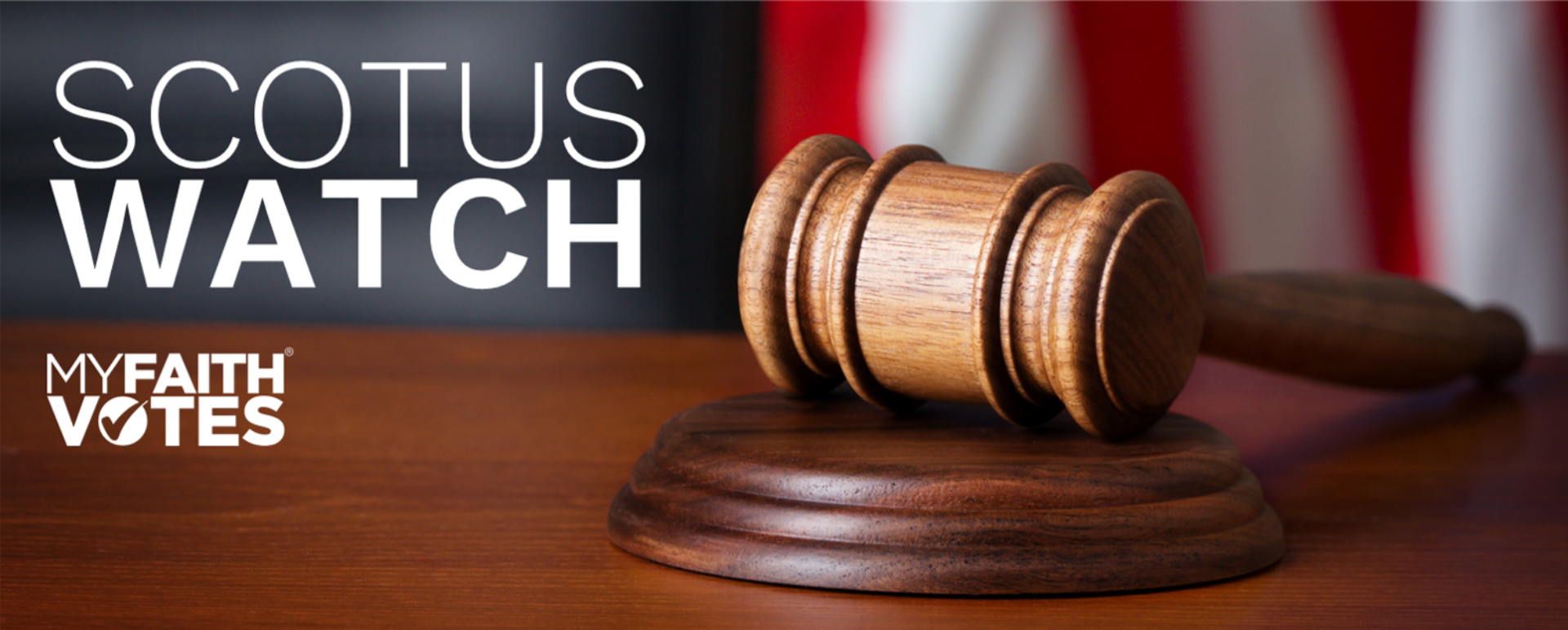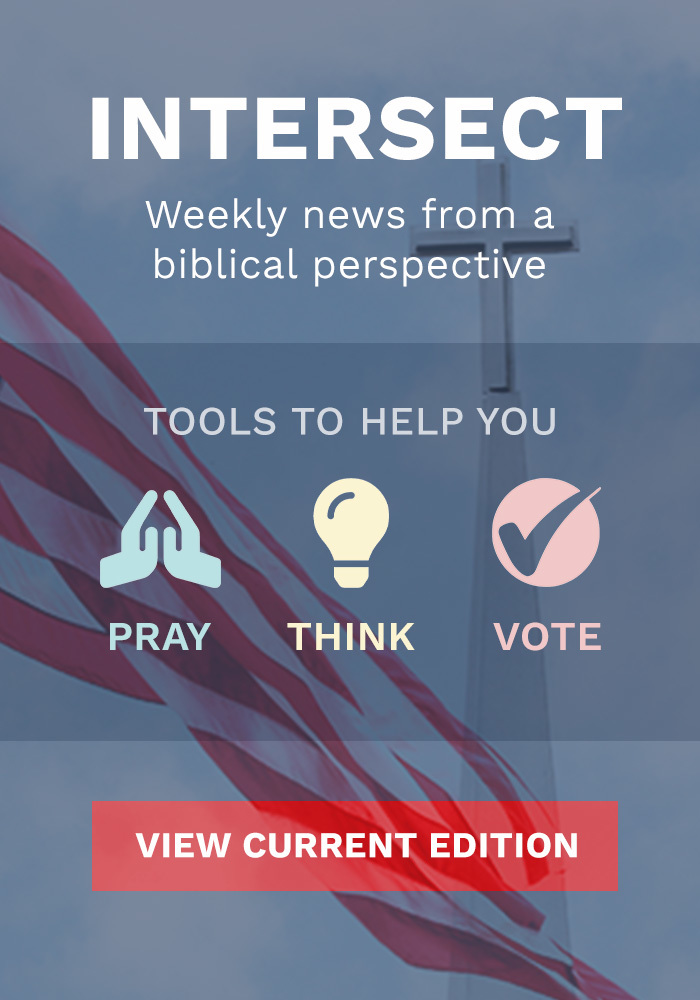
SCOTUS Watch | June 18, 2020
This week, the Supreme Court has issued arguably the most significant Supreme Court decision since Roe v. Wade and Obergefell v. Hodges (the case granting same-sex couples the right to marry).
Redefining “Sex” in American Law
In the case, Bostock v. Clayton County, the Supreme Court by a 6-3 majority redefined “sex” in federal law to mean “sexual orientation” and “gender identity.”
This redefines Title VII of the Civil Rights Act of 1964, which prohibits employment discrimination on the basis of race, color, religion, sex, or national origin.
It is clear, that when Congress passed Title VII into law back in 1964, they did not intend sex also to mean “sexual orientation” and “gender identity.” The historical context clearly explains this law related to the mistreatment of women. To expand the law beyond this is not the role of the Court.
For years Congress has tried to pass laws that would expand Title VII to include gender identity and sexual orientation as protected classes, but this has never received enough votes to become law. Yet, in this case, the Supreme Court has made the decision that is Constitutionally the role of Congress.
Justice Kavanaugh wrote, “It was Congress’s role, not this Court’s, to amend Title VII.”
The Heritage Foundation stated, “Why bother trying to pass the proposed Equality Act when you can get the justices to make law for you?”
It’s safe to say conservatives and Christians across the nation are in shock over this ruling. Justices Alito, Kavanaugh, and Thomas all communicated with their dissenting votes and opinions as six justices on the bench acted as lawmakers rather than judges.
Justice Kavanuagh wrote, “We are judges, not members of Congress.” He continued, "Instead of a hard-earned victory won through the democratic process, today’s victory is brought about by judicial dictate – judges latching on to a novel form of living literalism to rewrite ordinary meaning and remake American law," he wrote.
Justice Alito responded, "Under the Constitution and laws of the United States, this court is the wrong body to change American law in that way." Alito stated, "The question in these cases is not whether discrimination because of sexual orientation or gender identity should be outlawed, the question is whether Congress did that in 1964. It indisputably did not."
You can read the entire ruling here.
The case, Bostock v. Clayton County, Georgia, was also combined with two other cases, one of which was R.G. & G.R. Harris Funeral Homes, Inc. v. Equal Employment Opportunity Commission. You can read more about this case in a previous issue of the My Faith Votes SCOTUS Watch.
What Does This Decision Mean for Religious Freedom?
Robert Gagnon, a theology professor at Houston Baptist University, said this of the ruling:
"Make no mistake about it. This is a hard SCOTUS body blow to the abdomen of the Church, with many further blows to come. Today's decision by SCOTUS defining ‘sex’ in Title VII of the 1964 Civil Rights Act as including ‘sexual orientation’ and ‘gender identity’ is the gravest threat to the civil liberties of faithful Christians in the history of the Republic, overshadowing even Obergefell. The true Church will be tested by the State as never before. The State Inquisitor will bear down hard on us in every facet of our existence: Our education, our employment, our Christian institutions, our free speech, our free exercise, our privacy rights in public venues and public accommodations for private spaces, and even our families. Many false believers will be exposed in the process."
Russell Moore, president of the Southern Baptist Ethics & Religious Liberty Commission, wrote that the ruling will have “seismic implications for religious liberty, setting off potentially years of lawsuits and court struggles, about what this means, for example, for religious organizations with religious convictions about the meaning of sex and sexuality.”
Although Justice Gorsuch ruled in favor of expanding the meaning of Title VII, he did attempt to address religious liberty concerns writing, “We are also deeply concerned with preserving the promise of the free exercise of religion enshrined in our Constitution; that guarantee lies at the heart of our pluralistic society. But worries about how Title VII may intersect with religious liberty are nothing new; they even predate the statute’s passage.”
However, conservative Justice Alito disagreed with Justice Gorsuch stating clearly, “The position that the Court now adopts will threaten freedom of religion, freedom of speech, and personal privacy and safety.”
This decision reminds Christians once again, that religious freedom is under attack, and now, more than ever before, Christians must be engaged. While we stand for God’s truth in the public square, we must also remember Hebrews 10:23, “Let us hold unswervingly to the hope we profess, for he who promised is faithful.”
In More Supreme Court News, The Court Refuses to Hear Second Amendment Case, Rogers v. Grewal
This case is regarding the state law of New Jersey, which requires people to have a “justifiable need” in order to obtain a concealed carry permit in the state.
Second Amendment advocates argue this infringes on the right to keep and bear arms. Justice Clarence Thomas dissented in the Supreme Court’s decision not to take a significant Second Amendment Case out of New Jersey.
Justice Thomas wrote, “One would think that such an onerous burden on a fundamental right would warrant this Court’s review. This Court would almost certainly review the constitutionality of a law requiring citizens to establish a justifiable need before exercising their free speech rights.”
He continued, “And it seems highly unlikely that the Court would allow a State to enforce a law requiring a woman to provide a justifiable need before seeking an abortion, but today, faced with a petition challenging just such a restriction on citizens’ Second Amendment rights, the Court simply looks the other way.”
Justice Thomas makes a valid point. If this issue was related to abortion, the Court likely would have accepted a hearing on the case.
The Supreme Court’s Ruling on DACA
Another significant case before the Supreme Court this session was the Department of Homeland Security v. Regents of the University of California. The justices ruling on this case decided the fate of the Trump administration’s decision to end the DACA (Deferred Action for Childhood Arrivals) program.
Justice Roberts joined the liberal justices on the bench with a 5-4 decision. The DACA program was implemented by the Obama administration and without congressional approval.
The program granted illegal aliens, who came to the United States as minors, to be eligible to apply for a two-year reprieve from deportation, work authorization, and receive taxpayer benefits such as Medicare and Social Security. Roughly 700,000 illegal aliens collect benefits through the program.
The liberal justices, along with Justice Roberts, claim President Trump’s termination of the DACA program violated the Administrative Procedure Act’s (APA) rulemaking procedures for federal agencies.
Justice Roberts wrote, "We do not decide whether DACA (Deferred Action for Childhood Arrivals) or its rescission are sound policies. We address only whether the agency complied with the procedural requirement that it provide a reasoned explanation for its action. Here the agency failed to consider the conspicuous issues of whether to retain forbearance and what if anything to do about the hardship to DACA recipients."
The major challenge to the program is that it was established by the executive branch (President Obama’s order) rather than the legislative branch, Congress.
As Hans A. von Spakovsky with the Heritage Foundation writes, “No one disputes that Congress has complete authority over immigration matters under the Constitution.”
Justice Samiel Alito, who dissented in the ruling, stated DACA was “unlawful from the start, and that alone is sufficient to justify its termination.”
Some on Capitol Hill have been outraged over the Court’s decision.
Congressman Jim Jordan responded: “By ruling that President Trump cannot terminate DACA in the same manner that President Obama used to start it, the Court’s decision creates two standards of executive power: one for President Obama and another for President Trump. Today’s decision binds the Trump Administration to the politically-expedient policy decisions of President Obama, and hampers efforts to meaningfully restore sanity to our immigration system.”
President Trump responded to all of these rulings tweeting, “The recent Supreme Court decisions, not only on DACA, Sanctuary Cities, Census, and others, tell you only one thing, we need NEW JUSTICES of the Supreme Court. If the Radical Left Democrats assume power, your Second Amendment, Right to Life, Secure Borders, and ... Religious Liberty, among many other things, are OVER and GONE!”
You can read the entire ruling here.
President Trump has promised to release a new list of conservative Supreme Court Justice nominees by September 1, 2020.
We will continue to keep you updated on these critical rulings. Please be in prayer for our justices, elected leaders, and the defenders of religious freedom and Constitutional rights working on the front lines to protect our liberties.
Download the My Faith Votes Prayer Guide for Government Officials here.
###
My Faith Votes— is a ministry that motivates, equips, and activates Christians in America to vote in every election, transforming our communities and influencing our nation with biblical truth. An estimated 25 million Christians who are registered to vote, fail to vote in presidential elections. My Faith Votes is on a mission to change this statistic by helping Christians act on their faith and vote in every election. When we pray unceasingly for our nation, think biblically about the issues, and vote consistently in every election the impact of Christians taking action from the local to the state and federal level will be unprecedented.
Website | www.myfaithvotes.org Twitter | @MyFaithVotes Facebook | My Faith Votes
